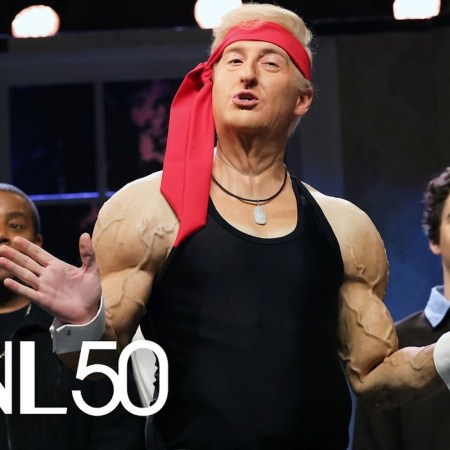The third presidential debate is Wednesday night. Moderated by Chris Wallace from Fox News, it’s going to mirror the format of the first debate.
Prediction: You will not learn more about the issues.
You will, however, witness a talking points scrum layered with pro wrestling overtones (minus the entertainment value). There will be stunt casting, forced spousal separation and two candidates veering off into whatever muckraking territory they prefer.
While we’re secretly pulling for the candidates and their respective camps to end up on Family Feud (“Donald, Bill — what’s something you’d hear in a locker room?”), Intelligence Squared U.S. has a more viable solution.
What the nonpartisan, nonprofit org is suggesting is nothing new: rather, it’s a switch to a classic debate format originally developed at Oxford University.
Since its inception in 2006, IQ2 has held over 120 stimulating debates around the country utilizing this substance-first style.
A good explanation of the Oxford debate can be found in this video. To summarize, it forces candidates to stay on topic (starting with a seven-minute opening statement), win over an audience by sticking to an argument and stop with all the damn interruptions.
We spoke with Clea Chang, the Chief Marketing and Digital Officer at Intelligence Squared U.S., who spearheaded the petition effort at Change.org to disrupt the current debate format.
What is the advantage of the Oxford-style debate? And how did you decide this was superior to other debate formats?
Oxford-style debate is a proven method of debate, with one side proposing and the other side opposing a sharply-framed motion. Structurally, there is a clear dichotomy for two sides to argue. That makes for an exciting, rigorous conversation, structured to focus on substance. Repetitive talking points and soundbites are just not substantive enough to win an Oxford-style debate.
Oxford-style debate is also distinguished by the audience: a winner is declared at the end of the debate by way of an audience vote. It forces debaters to prove the validity of an argument, and it also keeps things civil.
How would the Oxford format prevent candidates from either talking over each other or going off on their own agendas/tangents?
Arguing for or against a single proposition throughout the debate helps to focus the discussion—changing the topic really isn’t an option. It also quickly becomes clear who has a strong grasp of the subject at hand and who is just repeating memorized talking points. Interrupting is not allowed during opening and closing remarks, though some interruption is permitted during the Q&A. It’s important to have a strong moderator to keep the conversation, and debaters, on track.
You met your original goal of 50,000 signatures on Change.org … what’s your next step?
Our Change.org petition demonstrated that there is a groundswell of support and concern surrounding the quality of our presidential debates. After all, we just witnessed what some are calling the most shameful debates in American history. We need to reform the presidential debates more than ever. Until there is a change of format, the repetitive soundbites, mudslinging and name-calling will continue to derail our most important national conversations.
What’s your opinion of the debate moderators during the first two presidential debates?
The debate moderators did very well considering the pitfalls of the format they have to work with. A better format would make every moderator look better.
What advice would you give each candidate for their third debate?
Show the voters that you respect the process, because that will show you respect them. That means answering the questions that are asked, keeping within the time limits, and not taking every turn as an opportunity to go negative on your opponent.
Photo: TIMOTHY A. CLARY/AFP/Getty Images
The Charge will help you move better, think clearer and stay in the game longer. Subscribe to our wellness newsletter today.
























